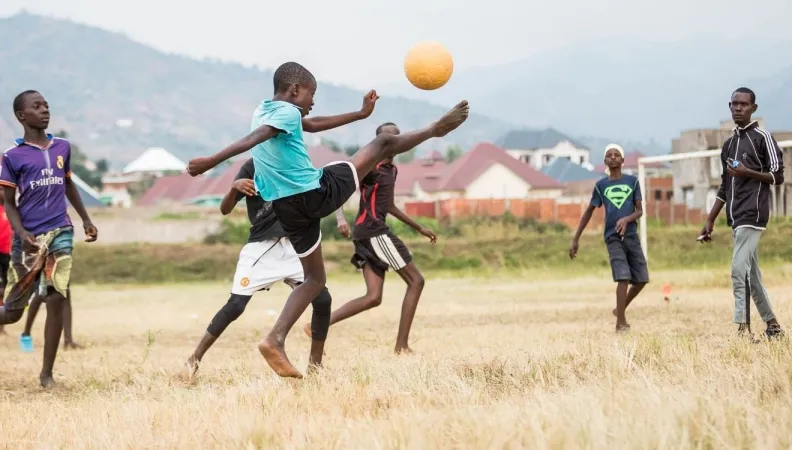Share the page

On May 27, during the official visit of the President of the French Republic to Rwanda, Dr. Uzziel Ndagijimana, Minister of Economy and Economic Planning of Rwanda, and Mr. Rémy Rioux, Director General of Agence Française de Développement (AFD) signed a financing agreement in support of Rwanda's school sports policy, at the office of the Presidence, in the presence of both Rwandan and French Presidents.
AFD's 1.5 million euro grant (1.7 billion Rwandan Francs) will support the launch and implementation of the school sports policy operated by the Rwandan Ministries of Education and Sports, as well as the launch of the national program of excellence ISONGA - "The best of the best" in Kinyarwanda.
In particular, this grant will support the Ministry of Education in the implementation of its new and ambitious school sports policy, and the Ministry of Sports in strengthening its project management capacity. It will also fund the operationalization of the pilot phase of the ISONGA program for the detection of sports talent in schools, supported by the Ministry of Sports.
The Rwandan government recognises sport as a key tool for social cohesion and has an ambitious policy framework, embodied in the twin goals of having a "higher percentage of the population practising sport than in any other African country" and being ranked among the top three African countries in basketball, volleyball, athletics and Paralympic sports, and the top ten in football.
To meet these objectives, it has structured mechanisms for the detection and training of young sports talents over the last ten years. It has thus set up centres of excellence housed in secondary schools and dedicated to a few sports such as football, basketball, volleyball, handball, cycling and athletics. The young sports talents follow sports training in parallel with their educational programme.
At the same time, a specific programme dedicated to football training for boys under the age of 17 has been initiated. It is this "ISONGA" programme, which is now integrated into the centres of excellence, that AFD is financing. It now aims to improve the training of talented young girls and boys, the level of infrastructure and sports equipment within the centres of excellence and the training of coaches and referees.
To complete this framework, the Ministry of Education, for its part, has recently drawn up a new School Sport Policy, in consultation with the Ministry of Sport, with the aim of improving the physical and mental health of children, contributing to the development of high-level sport by improving the mechanisms for detecting, taking charge of and supporting young talent and promoting the practice of mass sport.
